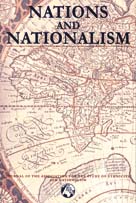Article contents
The ethnic dimension to bureaucratic encounters in postcommunist Europe: perceptions and experience
Published online by Cambridge University Press: 01 January 2000
Abstract
In a survey of public opinion about the behaviour of officials in four postcommunist countries – Ukraine, Bulgaria, Slovakia and the Czech Republic – we found pervasive suspicions of ethnic bias. Although ethnic minorities themselves were particularly suspicious of officials, there was a consensus across both ethnic majorities and minorities that officials favoured their own ethnic group and discriminated against others.
Suspicion may distort reality, however. Citizen' own reports of dealing with officials generally revealed much less ethnic discrimination in their personal experience than in their suspicions, presumptions and perceptions. Either suspicion exaggerated reality or general perceptions of bias focused on the most badly treated, rather than the most numerous, minorities.
Ethnic minorities themselves behaved in different ways towards officials. Amongst the ethnic minorities covered in this study, only Gypsies displayed the characteristics of hopelessness and ‘exclusion’. Some minorities behaved much like the titular nationality. But most compensated for their minority status by engaging more than the titular nationality in a wide range of strategies to influence officials – including the use of contacts, presents and bribes. Conversely, in areas where an ethnic minority was concentrated locally, members of the titular nationality displayed a measurably defensive reaction and a somewhat heightened degree of vigilance.
The paper is based on a total of 6,050 interviews made in the winter of 1997–8, including representative country-wide samples and special additional samples in areas where ethnic minorities were concentrated. It compares the four titular nationalities with eight ethnic minorities.
- Type
- Research Article
- Information
- Copyright
- © 2000 Association for the Study of Ethnicity and Nationalism
- 7
- Cited by




